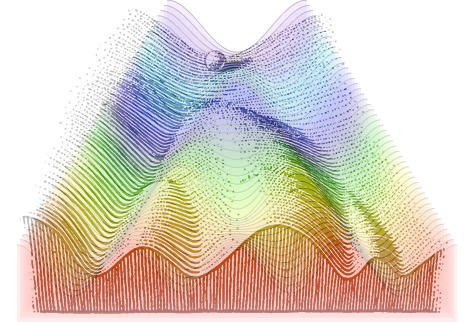
|
|
|
Aneta KoseskaToward studying developmental systems using transitions in collective system states Aneta Koseska The Max Planck Institute for Neurobiology of Behavior – Caesar, Bonn e-mail: aneta.koseska@mpinb.mpg.de
Mammalian development is characterized with transitions from homogeneous populations of precursor to heterogeneous population of specified cells. The cell state is considered as a cell intrinsic property, whereas the transitions are conceptualized as switching between different valleys in the Waddington landscape. Orthogonally to this framework, we discuss that the differentiation timing, robust cell-type proportions and recovery upon perturbation during developmental process are an emergent property of proliferating and communicating cell populations. In this view, the individual outcomes are inter-dependent and the differentiation is coordinated. Thus, the continuous landscape changes that occur in time as the population grows in size uniquely guide the system’s trajectory. We therefore propose that there is a necessity to generalize Waddington’s formulation of homeorhesis to describe processes that are quasi-stable and transient in nature, and adopt a non-autonomous system’s description as an underlying mathematical framework.
- |

